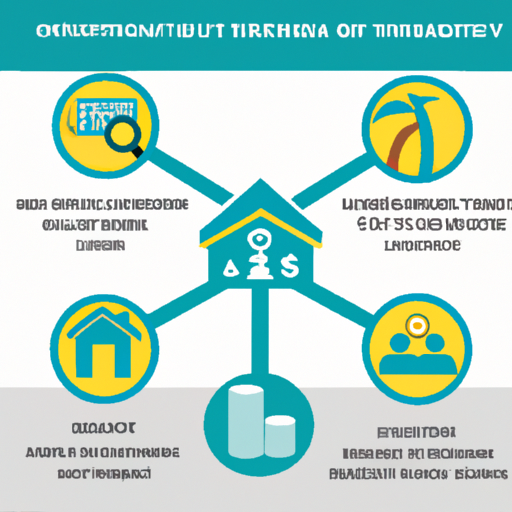
Investing in real estate can be a great way to grow your wealth and secure your financial future. However, not all aspects of real estate investing are beneficial or suitable for everyone. Let’s take a closer look at the options and identify which one is not considered a benefit of investing in real estate.
Benefits of Investing in Real Estate
Before we dive into the answer, let’s explore the various benefits that come with investing in real estate:
- Regular cash flow: Real estate investments, such as rental properties or commercial spaces, can provide a steady income stream through rental payments. This consistent cash flow can supplement your day job or even replace it over time.
- Appreciation in value: Over the long term, real estate tends to appreciate in value. This means that the property you invest in today could be worth significantly more tomorrow, allowing you to sell it for a profit.
- Tax advantages: Real estate investing offers several tax benefits. Expenses related to property management, repairs, and mortgage interest can often be deducted from your taxable income, reducing your overall tax burden.
- Diversification: Investing in real estate allows you to diversify your investment portfolio. This diversification can help minimize risks and protect your wealth by not putting all your eggs in one basket.
- Inflation hedge: Real estate investments are often considered a good hedge against inflation. As inflation rises, so do rental prices and property values, allowing your investment to keep pace with or even outperform inflation.
- Control over your investment: Unlike other investment options like stocks or mutual funds, real estate investment gives you greater control. You have the ability to make improvements, adjust rental prices, and actively manage your property to increase its value and profitability.
- Loan leverage: Real estate investment offers the opportunity to use borrowed money, such as a mortgage, to finance a property. This leverage can boost your return on investment by allowing you to control a more valuable asset with a smaller initial investment.
The Exception: Not a Benefit of Real Estate Investing
Considering all these benefits, you might be wondering which one is not considered a benefit of investing in real estate. The answer is Loan leverage.
While loan leverage can indeed enhance your return on investment, it’s important to exercise caution when using borrowed money. High levels of debt can increase the risk associated with your investment and potentially lead to financial difficulties if the property’s value declines or rental income decreases.
It’s crucial to evaluate your financial situation, have a contingency plan, and consider the potential risks before leveraging loans for real estate investment. Striking the right balance between leverage and risk is essential for a successful real estate investment strategy.
Remember, real estate investing is not without its challenges and requires careful planning, research, and ongoing management. It’s always a good idea to seek advice from experienced professionals or consult with a financial advisor before embarking on any investment journey.
So, while all the other benefits discussed can make investing in real estate an attractive option, make sure to approach loan leverage with caution and careful consideration.